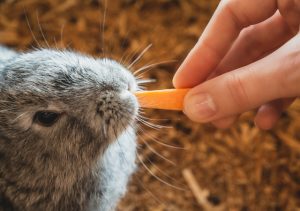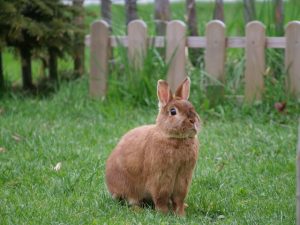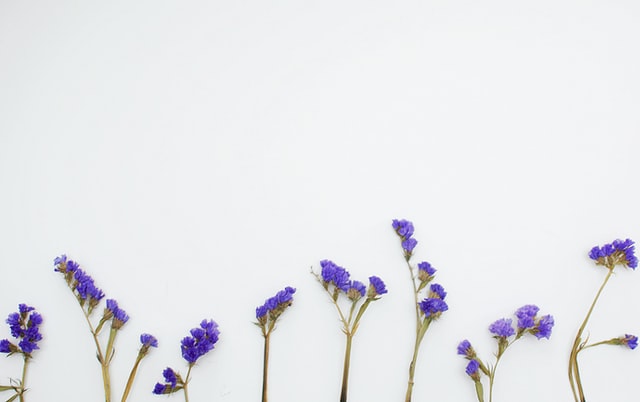
Chicory is considered to be part of the dandelion family. Chicory has a tough stem that appears hairy. The flowers are a light purple to blue color and the leaves are generally eaten as part of a salad. The roots are used most often to make coffee. The roots are roasted, ground into fine particles and then brewed. We are not giving your rabbit any chicory coffee though!
A rabbit's digestive system can be considered somewhat delicate. There are many things that the rabbit should not eat, some that it should eat rarely and then some other products that can be given once in a while, as for a treat.
To get right to the point, a rabbit should eat very little chicory, maybe a small amount once a week, at the most. This is due to the phosphorus, acidic and the calcium content in the chicory.
What amount is okay for a rabbit to eat is debated widely. Let’s go through the chicory plant and determine what is safe for your floppy eared friend and what may not be safe.
The Chicory Leaves and tops of the plant.
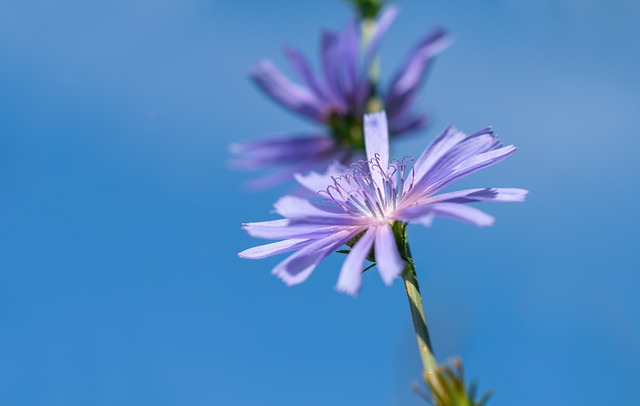
The chicory leaves are a great source for Vitamin A, (beta-carotene), pantothenic acid, folate and Vitamins C, E, K, along with necessary dietary fiber, manganese and calcium.
If you wanted to feed some chicory leaves to your rabbit, I would suggest chopping one chicory leaf and combining it with a mix of other green leafy vegetables. When mixing it with other leafy greens, your rabbit can have up to a cup total. Again, not more than once a week to be safe.
The problem is that chicory can cause stomach issues for a rabbit due to the low fiber content.
Chicory Root
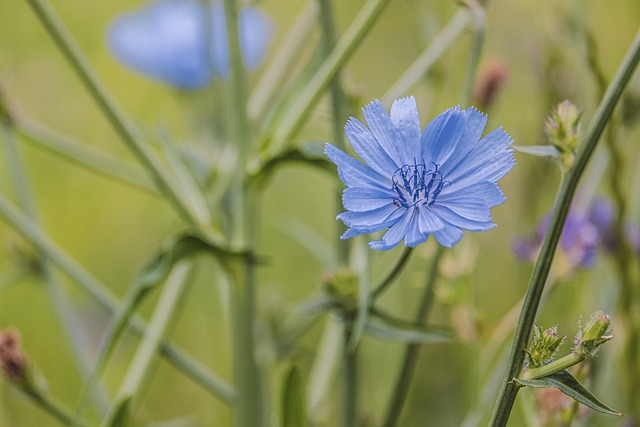
You can offer small bits of the root to your rabbit. If you chop up the root and mix it with other treat type chunks, your rabbit will be happy with the treats.
Chicory can also be called curly endive. Escarole is another part of the same family of leafy green vegetables. We will discuss those at another time. Chicory is not native to North America, but it is becoming more widespread. It can be found growing in the wild, in Refuges, ditches and State Parks. In other words, you will most often find chicory growing wild. Chicory can easily be grown in cool weather for an herb garden.
Chicory, however, is great for a rabbit to chew on and it keeps the teeth down as is needed with Rabbits. Chicory root does contain inulin. Inulin is a natural prebiotic. This helps the digestive system in rabbits. Another item that is found in chicory is called oxalic acid. Oxalic acid is harmless to animals and humans, in small amounts.
In small amounts a rabbit is able to eat chicory and endive. They should be fed in limited amounts only once or twice a week. Chicory has a nutty flavor to it, and adding chicory to the Timothy hay will give the hay a little more flavor.
Rabbits and Endive
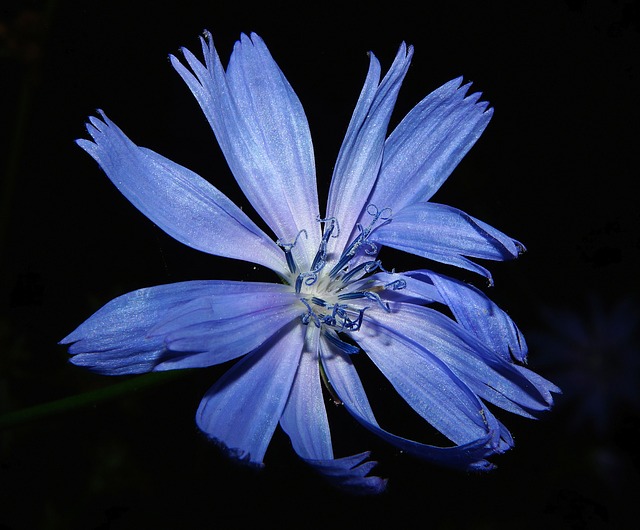
Endive is part of the chicory family of plants. Endive is a sweet, leafy green plant. We know that humans can eat this leafy green. We also know that rabbits love leafy green vegetables, but is Endive a good one for them to have?
Endive is a vegetable that is high in potassium content, as well as having complex fibers, vitamins and minerals. This means that yes, a rabbit can eat Endive. But how much is the right amount for your furry buddy?
Endive is a recommended part of your rabbit’s diet. It should be mixed in with other greens. There is a low calcium amount in Endive, which makes this a good thing for rabbits. The rabbits are not able to have high levels of calcium in their foods. Their digestive systems cannot deal with high levels of calcium and this can lead to bladder or kidney problems, when the calcium begins to build up in their systems.
When given in good amounts, like a proper balance between the Endive and other green leafy vegetables, and also balance out with Timothy hay. The combination of all enables the rabbits to have more of what they need as far as minerals, vitamins and fiber. When you want to give your rabbit some endive, wash the leaves well, cut off both the ends of the leaves and then cut them into little pieces for the rabbit.
Just like all things, too much of a good thing is not good. This is not to say that Endive will kill your rabbit, it will, however, cause some digestive issues that the rabbit may need help to work through.
When it comes to feeding your rabbit, changing his or her diet up is a good thing. In other words, try to mix different appropriate foods together instead of serving the same items each day. As mentioned, different vegetables have different health benefits and you do want your rabbit to have as much nutrition as is recommended so that they stay healthy and happy.
At the same time, do not feel bad if your little buddy has the same type of greens a couple of days in a row. When you consider a rabbit in the wild, they do not get to have a smorgasbord of choices. They tend to eat what they find in the wild and that is likely the same foods many days in a row.
Treats
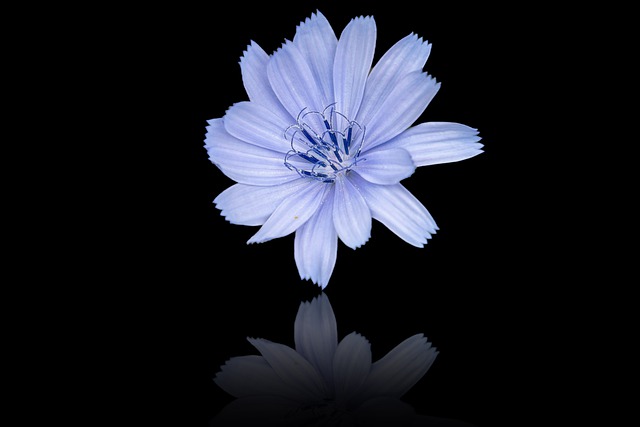
Rabbits should have at least a little of their favorite food every day. The amount depends on the time. But, some of the foods your rabbit can have as a treat every day include:
- Romaine
- Bok choy
- Cilantro
- Watercress
- Mustard Greens
- Beet Greens
- Broccoli Greens
- Carrot Tops
However, the carrot itself is not a food that rabbits should eat everyday. It does not do well in their digestive system. There are many types of greens and vegetables that the Rabbit should not consume, or consume very little of.
- Collards
- Dandelion Greens
- Parsley
- Kale
- Swiss Chard
These should only be eaten sparingly. These items are great for snacks and small amounts of them as treats. Although recommended in small amounts seldomly, Endive and Chicory are both healthy for the rabbits. Endive is loaded with Vitamins A and K, iron and folate. Plus endive has what is called kaempferol which helps reduce inflammation, and may also help prevent some cancerous tumors.
As with all new foods, they should be introduced slowly, a little at a time. Doing it this way allows you to be sure there is no diarrhea or stomach upset that happens. If you give too much at first and it does not sit well with the rabbit, this could cause some real health issues.
Even if the rabbit seems to enjoy it, you need to resist the urge to give too much at first. As you know, if a human eats a full serving of some food and it does not sit well, then we have a stomach ache or worse. Imagine being a small creature with that same pain and same feeling of being sick.
All animals need a proper diet, but not only proper, it should be a well balanced diet. A Rabbit’s main item of food should be the Timothy Hay at 80% of the entire amount of food each day. Fresh foods should be at 10 % of the daily amount of food, high fiber pellets at 5% and treats up to 5%.
Conclusion
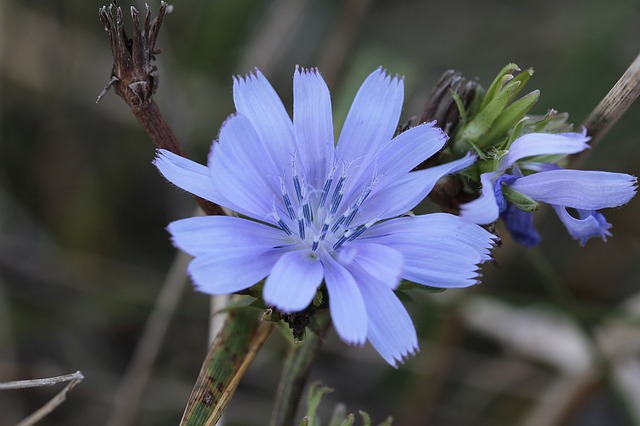
Following these guidelines for both Chicory and Endive will keep your rabbit healthy and happy and able to live a long rabbit life. Remember that what your rabbit eats will also have an effect on the color of it’s feces. Again, any questions in regards to this should be asked of your veterinarian.
Do keep in mind that there are multiple types of chicory. If in doubt contact your veterinarian who should be able to answer all the questions you have in regards to your rabbit and a healthy diet. It is recommended to do research on all things if you have questions.
There is plenty of information available from local vets, libraries, rabbit owners and even Rabbit Associations. Any of these will be beneficial to you if you are ever in doubt of a food, a behavior being exhibited by your rabbit, or any other questions you may have.
If you do see signs of illness or if your rabbit looks to be lethargic, then please immediately call the veterinarian you have and get the rabbit in for an immediate checkup. The vet may be able to see something is wrong before you do. And, if there is something serious, he or she will be able to begin treatment immediately to help the rabbit.


